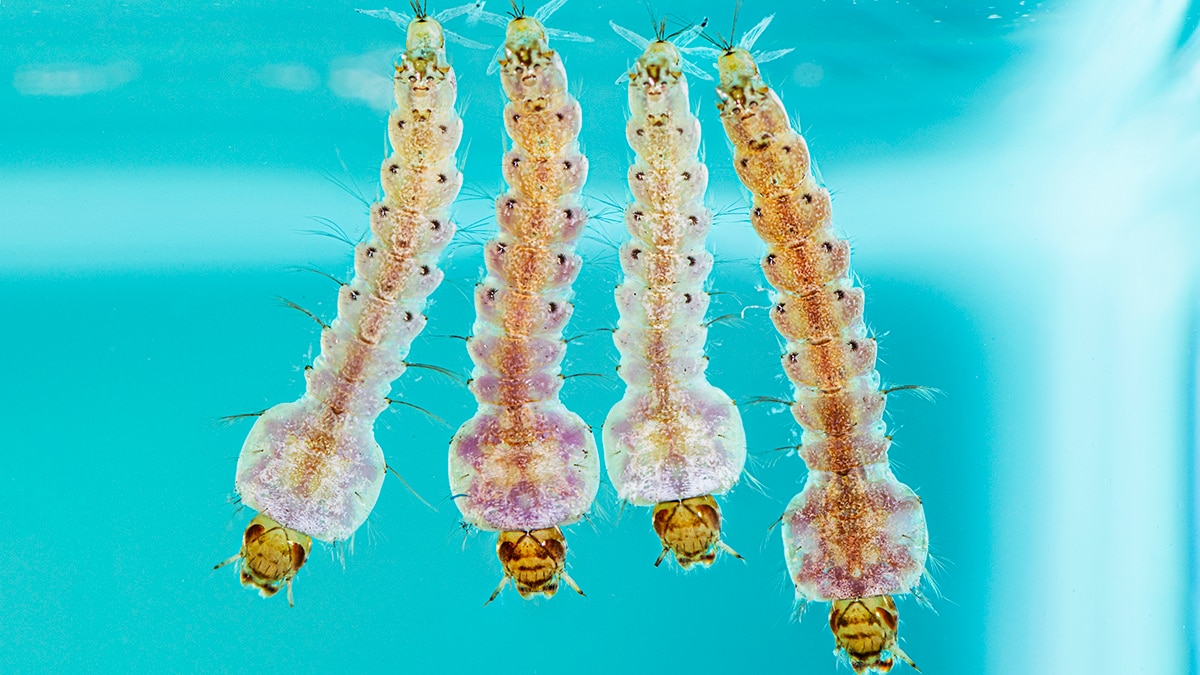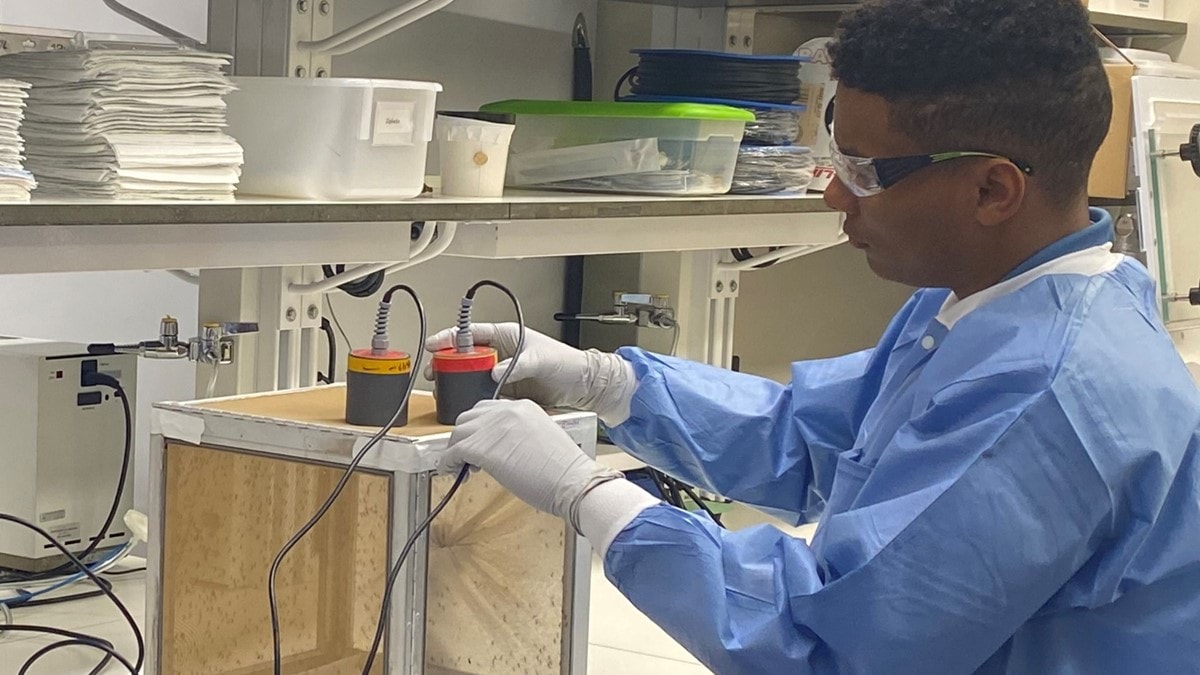Key points
- CDC maintains a secure and safe insectary to study the Anopheles mosquito which transmits the malaria parasite.
- The resources available on DPDx are available to strengthen the diagnosis of parasitic diseases, including malaria, both in the United States and abroad.

CDC’s insectary
CDC's insectary maintains colonies of Anopheles mosquitoes collected from areas of the world where malaria is or can be transmitted. The mosquitoes are raised in a climate-controlled insectary with additional rooms for secure biological containment of malaria-infected vectors. These vector species are used for both transmission experiments and vector genetics and behavioral studies.

The facilities also serve as a repository for the active collection of over a dozen species and numerous isolates of malaria parasites of human and nonhuman primates.
Mosquito colonies
CDC studies various vector colonies from different regions around the world, including
- United States (Anopheles quadrimaculatus and An. freeborni)
- India (An. stephensi)
- Africa (An. gambiae and An. arabiensis)
- Southeast Asia/Thailand (An. dirus, An. sawadwongporni, and An. minimus)
- Papua New Guinea (An. farauti)
- Spain (An. atroparvus)
- El Salvador (An. albimanus)
Malaria Research and Reference Reagent Resource Center (MR4)
CDC plays a vital role in the BEI Resources Malaria Research and Reference Reagent Resource Center (MR4), to provide vector-related materials to qualified BEI users. These materials include more than 40 strains and species of mosquitoes, along with preserved material, genomic DNAs, information, and primers for vector species identification. CDC has also donated numerous Plasmodium parasites to MR4. Together, these constitute an unmatched biological resource, facilitating continued research on standardized strains, and providing reference material to private, government, and academic researchers.
DPDx
CDC maintains DPDx, a web site to strengthen the diagnosis of parasitic diseases, including malaria, both in the United States and abroad.
The site contains concise reviews of parasites and parasitic diseases, including an image library and a review of recommended procedures for collecting, shipping, processing, and examining biologic specimens and provides diagnostic assistance. Laboratorians and other health professionals can ask questions and/or send digital images of specimens for expedited review and consultation with CDC staff free of charge.
